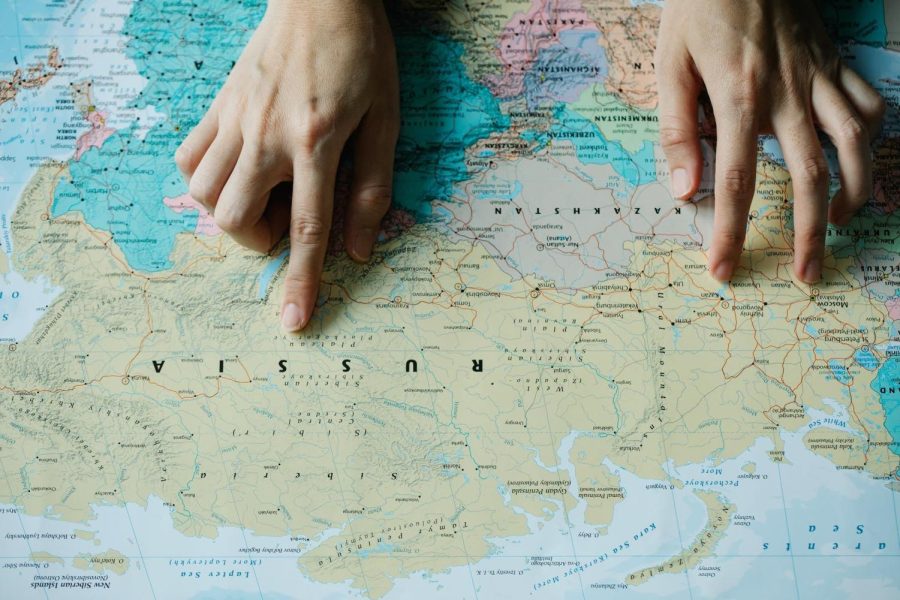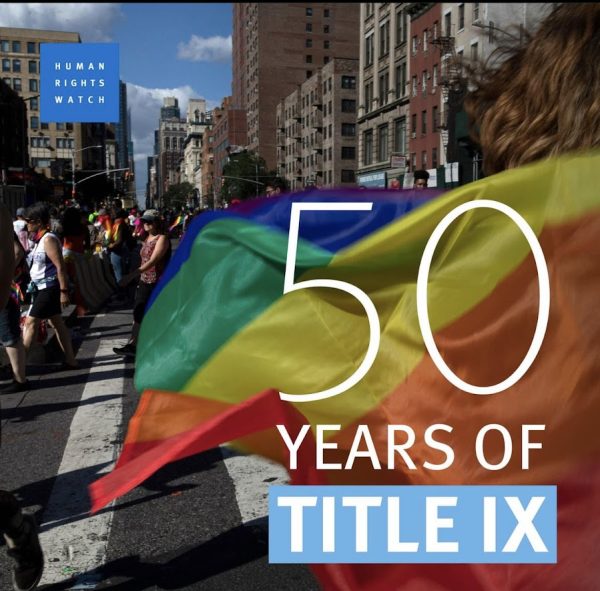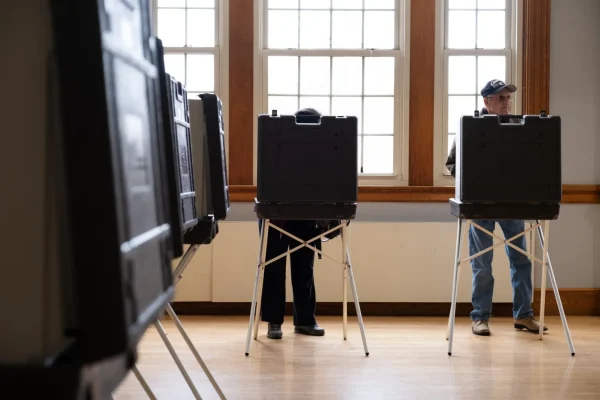Anti-Russian discrimination in the U.S. on the rise after Russia’s invasion of Ukraine
Photo courtesy of Pexels/Lara Jameson.
Hands point to a map of Russia.
Since Russia invaded Ukraine, Russians who have immigrated to other countries have been facing increased discrimination and violence. This hostility has manifested itself in decreased business and employment for companies with Russian sounding names, even if these companies are not Russian.
Other business owners have reported receiving threatening phone calls and messages. Olga Sagan, a woman who immigrated from Russia in 1999 and is now an American citizen said she recently received a frightening phone call from someone who threatened to attack Piroshky Piroshky, her Russian bakery in Seattle.
Russian expert and head of Carnegie Mellon’s Heinz College, Sarah E. Mendelson, said that she “can’t recall such intense anti-Russian backlash translating into people protesting restaurants or products, even after Russia’s bombing campaigns in Syria and its invasion of Crimea in 2014.”
The overall hostility and violent behavior that Russians have recently experiences has extended far beyond businesses and restaurants.
Children of Russian immigrants in the U.S. have reported being bullied at school, while homeowners have had their cars vandalized. One member of the NHL told agent Dan Milstein, who works with many Russian and Belarusian clients, that a stranger told him to “pack his bags and go back to effing Russia.”
Unfortunately, the discrimination follows historical precedent in the U.S. During World War II, Japanese individuals and families in the US were put into internment camps.
More recently, after the 9/11 terrorist attacks, many hate crimes were perpetrated against Muslim businesses, homes and people.
David Foglesong, who teaches history and specializes in U.S.-Russian Relations at Rutgers University, said that Americans need to work to overcome discrimination and hatred towards Russians, and, “instead of terminating cultural exchanges and person-to-person contacts, we should be seeking to maintain them.”
Chris Haynes, a professor of international affairs, national security, and political science at the University of New Haven, assessed why people are discriminating against Russians and Ukrainians, and what leaders should be doing to protect against this.
“People are holding Russian-Americans accountable for these misdeeds, he said, “sometimes people will use them as a reason to take their own personal frustrations out.”
Haynes also said, “the most important thing is for responsible people and leaders to speak out against these kinds of things and identify the villain, which is Putin.”





